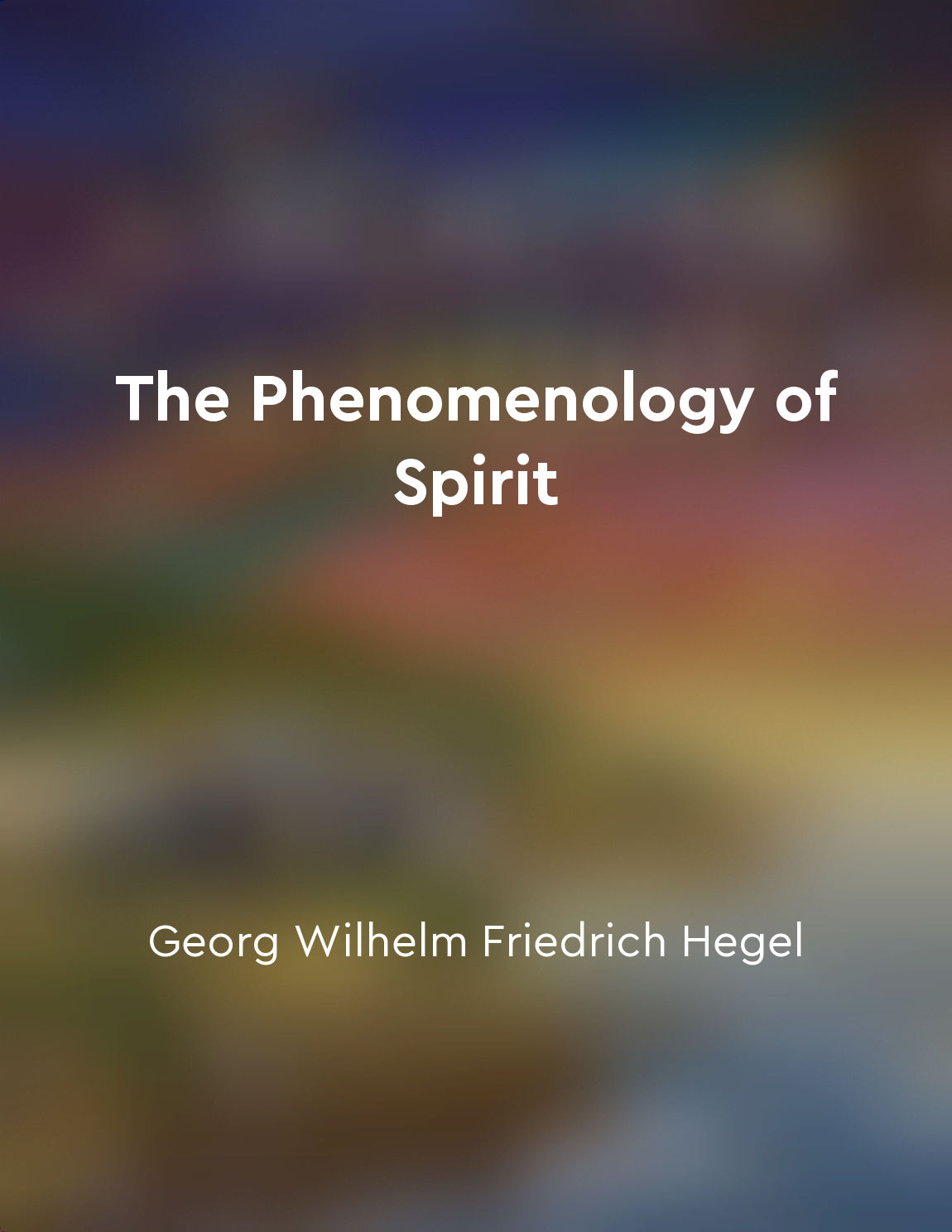Identity in difference from "summary" of The Phenomenology of Spirit by Georg Wilhelm Friedrich Hegel
The concept of identity in difference is a fundamental aspect of the dialectical process. It involves the recognition that identity and difference are not mutually exclusive, but rather interconnected and interdependent. In other words, identity is not static or fixed, but is constantly evolving and changing through its relation to difference. This concept challenges traditional notions of identity, which often seek to establish a stable and singular essence. Instead, Hegel argues that identity is always in relation to difference, and that it is through the dialectical process of thesis, antithesis, and synthesis that identity is both defined and transformed. At the heart of this concept is the idea that identity is not simply a matter of self-definition, but is also shaped by its relation to otherness. This means that identity is always in a state of flux, as it is constantly being defined and redefined in relation to difference. Furthermore, Hegel argues that it is through the recognition of difference that identity is able to achieve a deeper sense of self-awareness and self-understanding. By engaging with difference, identity is able to transcend its own limitations and reach a higher level of consciousness.- The concept of identity in difference is a complex and nuanced idea that challenges traditional understandings of identity. It highlights the dynamic and relational nature of identity, and emphasizes the importance of difference in shaping and defining who we are. Through this dialectical process, identity is able to achieve a greater sense of self-awareness and self-understanding, ultimately leading to a more comprehensive and holistic conception of the self.


